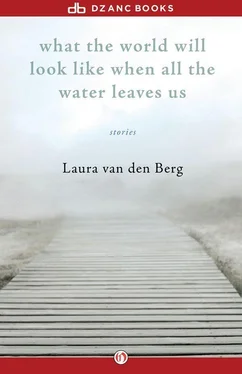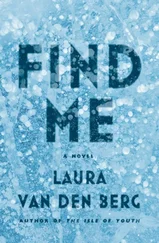She felt it was important to maintain her routines — just as she and everyone she knew had tried to do after the attacks in New York. But for her husband, it was not such a simple matter. He started leaving the office early to watch news reports, stepping out in the evening for a paper and coming home with four or five in his arms. And the cutting of the newspapers that came later: isolating articles about fires and assaults on police officers and spreading them across the kitchen table, as though they were puzzle pieces he was trying to fit together. Then, just after a state of emergency was declared in early November, he disappeared.
In the weeks before he vanished, Juliana found nests of paper scattered around the apartment. At first, the notes were connected to the riots: the times of special news programs, statistics on unemployment and poverty. But they quickly became more abstract, half-finished phrases and odd illustrations she assumed were economics equations: a shape that resembled a spider web with numbers and letters attached, intersecting lines and circles. Then one evening after work, she went for drinks with several colleagues, not bothering to call Cole and tell him she would be late. When she returned well past dinnertime, the door was unlocked and he wasn’t in the apartment. She assumed he’d stepped out for a while, probably to gather more newspapers, and so she graded a batch of student exercises, relieved to have the study to herself, then went to bed.
When she woke at two in the morning and realized he still had not returned, something in her chest went slack. She stayed up the rest of the night, waiting in the living room in jeans and a pajam a top, listening for the creak of the front door opening. He had been missing for three days when she came back from a meeting with the police and found a message on the answering machine. He had gotten out of the city and didn’t want her to look for him. He said she would be getting some papers in the mail— divorce papers, she thought at the time, although they never arrived — just before hanging up. Her sister, Louise, had been with her and re-played the message over and over. Even though they’d never been close, never shared the sisterly camaraderie Juliana envied in other women, Louise had insisted on flying from San Francisco to keep her company through the search.
“Do you really think that’s his voice?” Louise had asked, after she finished listening to the message for the sixth time.
“Of course,” Juliana had replied. “Who else could it be?”
“He sounds strange, doesn’t he?”
“Wouldn’t it be worse if he sounded totally normal?
Louise re-started the message. “What’s that background noise? Is he in traffic? At a train station?” She bit her upper lip. “Maybe an airfield?”
When Juliana said she couldn’t listen to the message anymore, they uncorked a bottle of wine and sat in the kitchen, where her sister eyed the answering machine as she talked about rising housing prices in California.
In the end, Juliana did not know whether he had gone back to the states or traveled elsewhere or remained in Paris. She had contacted his relatives and friends, searched all the places he frequented in the city, a wallet-sized picture in hand, called hotels and hospitals. He never returned to work, according to the Bank of France, and the police ended their investigation before the first snow fell. It could be a late-onset psychotic break, one officer had told her. Or perhaps some kind of mania. Her sister and the friends that visited — bringing along books on urban anxiety and personality disorders, things that were supposed to explain the turn her life had taken — had all come and gone by the end of spring.
Shortly after the metro had departed from the last station, the cars lurched to a stop, causing Juliana to stumble forward. The passengers muttered and swore and brushed against each other. It was incredibly hot, the air thick and sour. Juliana sipped her bottled water, then pressed the cool plastic against her forehead. The whistling was gone. The tunnel was quiet. She peeked into the woman’s bag once more before the lights went out.
The passengers began speaking loudly, shouting complaints and questions. The car was still and dark. Someone pushed Juliana and she stumbled to the side, knocking into another person. She dropped the bottled water and it rolled across the floor. She heard something fall from the woman’s grocery bag and splatter. Her leather satchel was heavy on her shoulder; she pulled it close. Something was swelling in her chest, hard and cold as Fredrick’s stony gaze. In this black space, suspended beneath the pulse of the city, it seemed possible for all of them to disappear.
Juliana heard footsteps and doors slamming. The passengers quieted and migrated away from the center of the car. Three people burst into the space, carrying flashlights that omitted a dim glow. “Laiser passer! Police!” one of them shouted. For a moment, a flashlight shone on the leader and Juliana saw the dark blue uniform and the blunt nose of a gun. She was relieved until she realized they appeared to be chasing someone. Even after the officers left the car, the passengers remained silent. She wondered if some of them were remembering London, the images of smoke and crumpled bodies that had flashed across television screens. She couldn’t stop thinking of Mrs. Reinard and her strange manner. Years from now, would the police find Fredrick clipping wires in a metro station or standing in a car with explosives belted around his waist? Was such a person here right now, a detonator hidden in his fist? It was then the lights returned and the train began to move.

The Hotel de Roch stood on Rue Chapon: a slender white building with a worn façade and a sign that extended into the street, flashing “hotel” in yellow letters. After Cole had been gone for a month and the police closed their investigation, Juliana moved out of the apartment. The two-bedroom was too large and expensive for her alone. She had spotted Hotel de Roch during an afternoon walk; it was only a few metro stops away from the school and guests were permitted to stay indefinitely. She had spent Christmas dragging luggage up the narrow staircase.
In her room, she switched on the small television that sat on the dresser and scanned news channels for a report on the incident in the metro, but found nothing. She went into the kitchenette and put a kettle on the stove, then sat at her desk and watched commercials for perfume and cleaning products before turning off the TV. She had scuffed hardwood floors that always felt cold in the morning and a single lamp on the bedside table, so there was never any good light. She had not unpacked her prints to hang on the walls and unopened cardboard boxes were still piled in a corner.
She heard footsteps in the hallway. The door opened and Leon stepped into her apartment. He had not shaved since she saw him earlier in the week and his white tee-shirt had specks of paint around the collar. He grew up on the southern coast of France — close to Spain, where he’d lived with his father after his mother died — and had maintained the room across the hall for two years. After a few chats in the hallway when she was still new to the building, he started dropping by on Friday nights for coffee. In the beginning, she thought it was possible something might happen between them, from the way he occasionally touched her knee, his eyes settling on her face with unbroken focus. But they had instead eased into something that was intimate and charged but managed to sidestep the erotic. When the heat was malfunctioning on their floor one evening in winter, they’d gone to Bistro d’Henri for drinks and she told him about coming to Paris and the riots and Cole leaving. I left all his clothes in the old apartment, on the bed, and my wedding ring on the dresser, she’d confessed near the end of her story, though she could not bring herself to tell him that she sometimes thought it would be easier if Cole had died, that she wanted so desperately to be done with the searching and the wondering that the certainty of death, of understanding what, exactly, she was mourning, would be a relief.
Читать дальше













